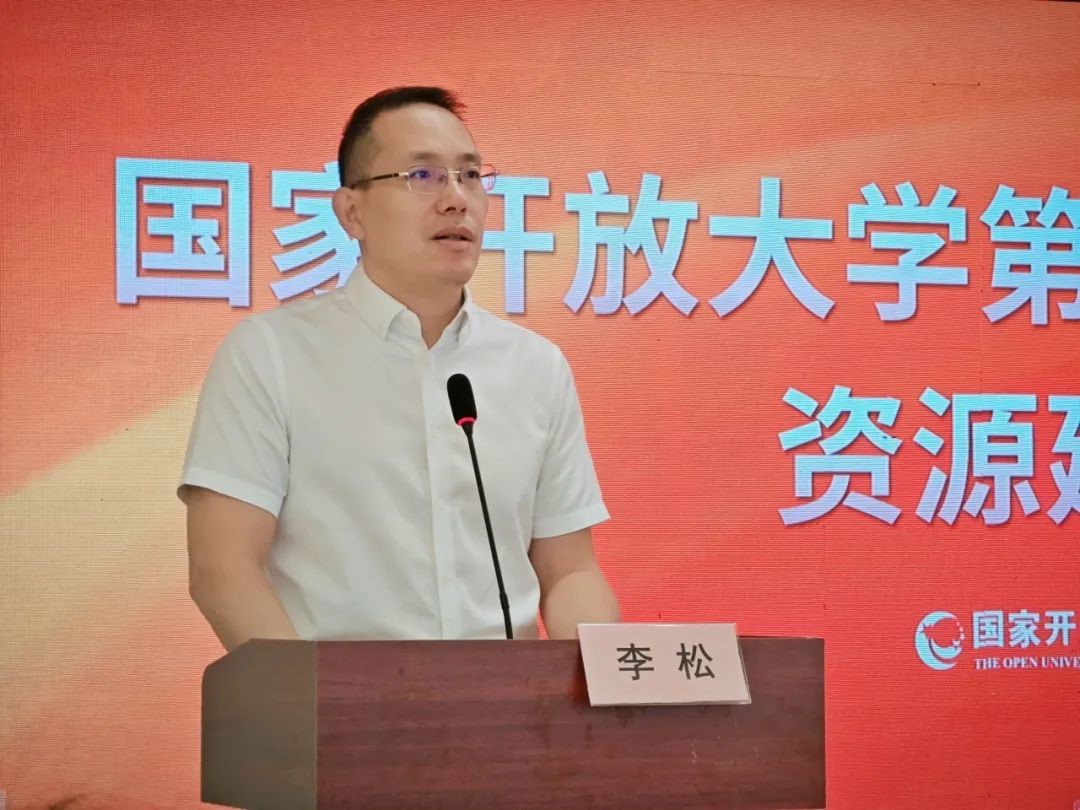 To implement the guiding principles of the National Conference on Education, improve the system of the Open University of China (OUC), and promote the high-quality and innovative development of open education in an integrated and coordinated manner, on 20 September 2024, the seminar on the construction of elective course resources incubated from the OUC’s inaugural approved projects was held in Qinhuangdao, Hebei Province.
To implement the guiding principles of the National Conference on Education, improve the system of the Open University of China (OUC), and promote the high-quality and innovative development of open education in an integrated and coordinated manner, on 20 September 2024, the seminar on the construction of elective course resources incubated from the OUC’s inaugural approved projects was held in Qinhuangdao, Hebei Province.
The theme of the event was "Develop distinctive and high-quality provincial-level open course resources and pool joint efforts to promote the high-quality resource development". Li Song, a member of the Party Committee and vice president of the OUC, attended the event. More than 60 people participated in the meeting, including provincial-level open course construction teams from 20 branches and heads of learning resources departments. The seminar was presided over by Li Wei, director of the Learning Resources Department of the OUC.

Li Song attended the event.
Li Song emphasised the following points. Firstly, high attention should be paid to promoting the enhancement of talent cultivation quality by means of course resource development. Courses are the fundamental units for talent cultivation and also the crucial elements for open universities to boost the quality of talent cultivation. Creating the core competitiveness of resources and conducting excellent course resource construction are important components for open universities to deepen educational and teaching reforms and achieve high-quality development. Secondly, it is essential to drive the transformation and upgrading of provincial-level open-course resources in a point-to-area manner. Provincial-level open courses are an important part of the OUC course system, and also a vital carrier for gathering the synergy of the system to realise the co-construction and sharing of high-quality resources. This event symbolizes the commencement of the transformation and upgrading of provincial-level open-course resources. By incubating and cultivating a number of high-quality provincial-level open-course resources, establishing typical examples and providing demonstrations, the overall capacity of course resource development in branches will be enhanced. Thirdly, research should be intensified to continuously upgrade teachers' innovative ability in resource construction and effectively serve the development needs of students. As teachers in the open university system, those in charge of provincial-level open courses should strengthen the research on students and polish course design, so that courses can effectively meet the requirements of students' job competence and promote the occurrence of in-depth learning among adult students.
Cheng Qian, deputy director of the Learning Resources Department of the OUC, introduced the selection process and target requirements of the incubated courses. Personnel in charge of the 21 provincial-level open courses selected in the first batch shared the reform plans for course resource development around the observation points of course construction, including the existing foundation of courses, reform ideas, innovation points and difficulties, construction measures and steps, etc.
The participants engaged in discussions and exchanges around topics such as instructional design, media design, AI empowerment, and textbook reform. Everyone said that the launch of the high-quality course resource incubation project has positive demonstration significance for educational reform. This event not only reached a consensus, grasped the trends and directions of high-quality learning resource construction in open education, but also inspired people, strengthened the exchanges and mutual promotion among course construction teams in branches, and improved the digital course construction ability of faculty in open universities.
It is reported that the OUC’s high-quality elective course resource incubation project is a specific measure for the university to deepen teaching reforms and strengthen system construction. Since the beginning of 2024, after three rounds of selection, 21 courses from 20 branches have been included in the list of the inaugural projects for incubation. Currently, reforms have been successively initiated as required, and in the follow-up, continuous promotion and implementation will be carried out through means such as workshops, expert-led tutoring, and achievement displays.
By Learning Resources Department, OUC